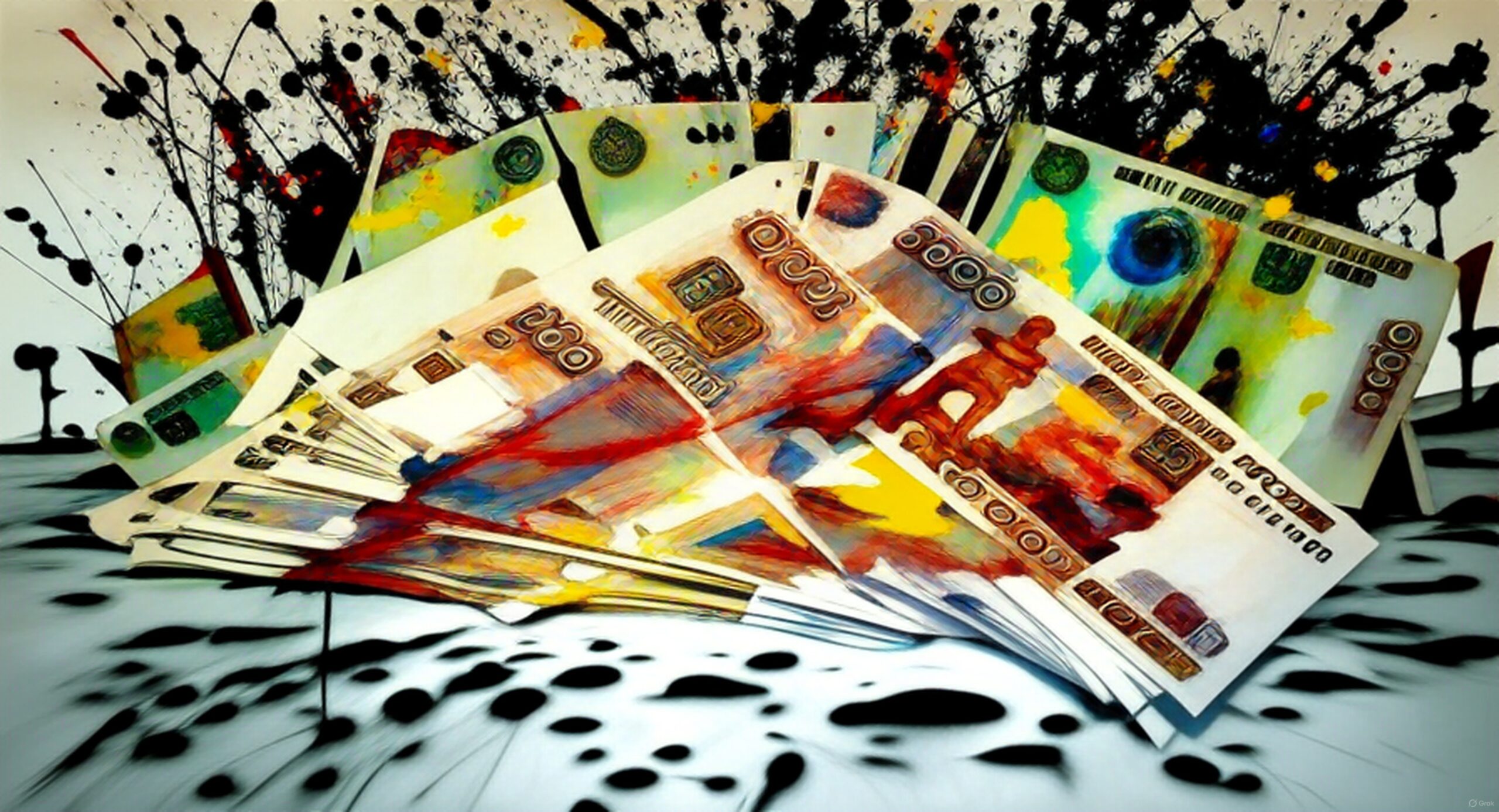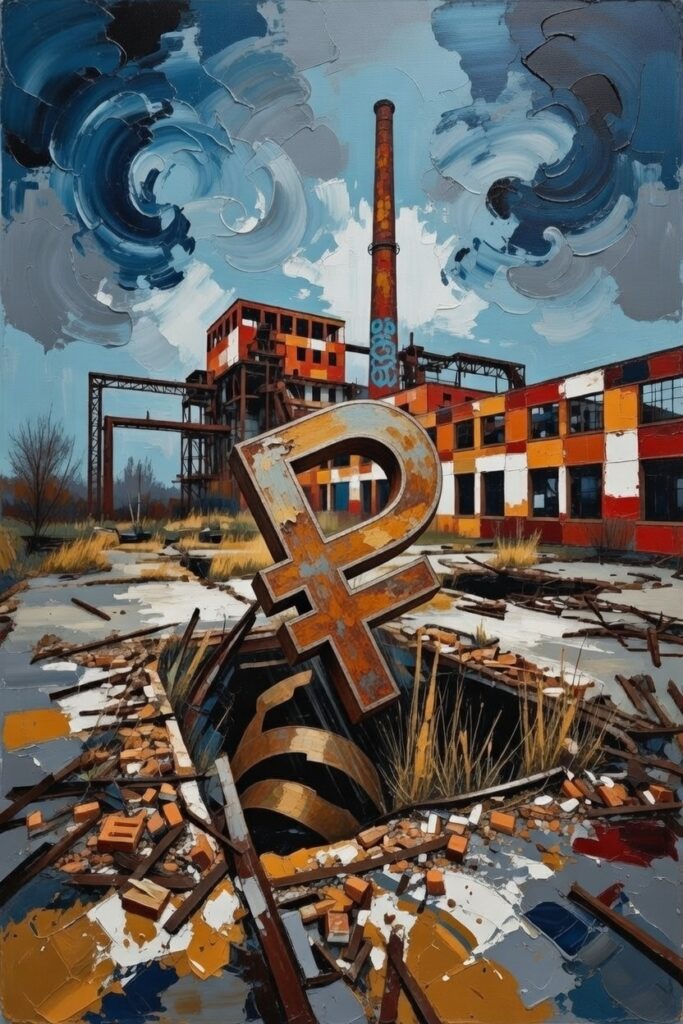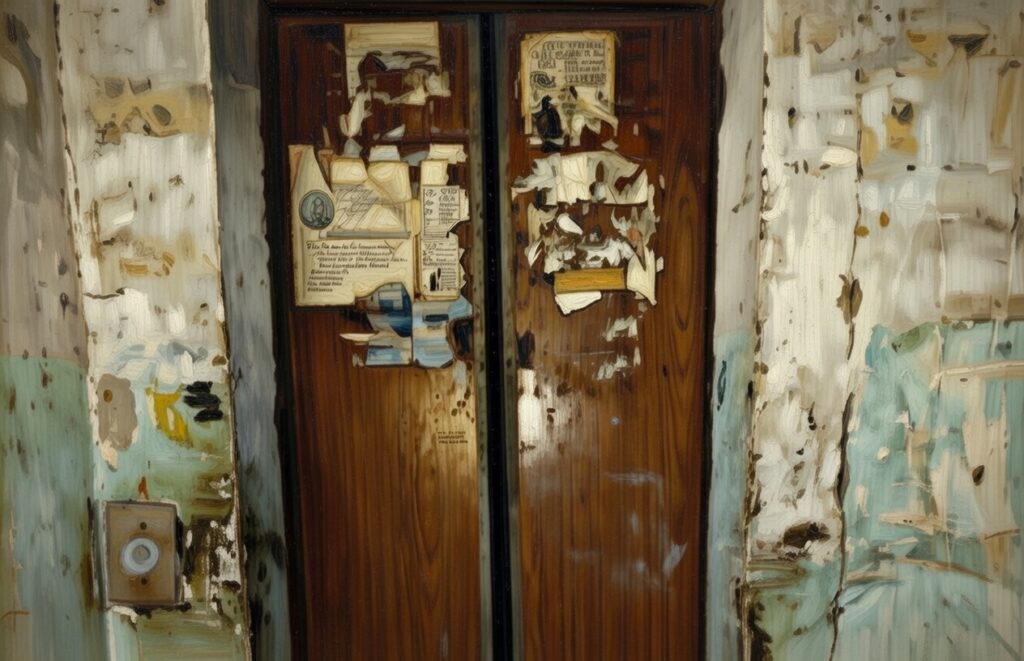A survey from TsMAKP reveals that the interest rate environment has fully aligned with reality. Indices tracking investment goods indicate that investment levels have never quite matched the peak in late 2022, following mobilization—the «big bang» that triggered uncontrolled inflation—and have declined 8% compared to 2024 highs, with a continued downward trend. If investment reflects confidence in what tomorrow holds, capital is signaling that things are about to worsen significantly. High investment rates with a relatively low multiplier effect—the extent to which each ruble invested generates additional production and consumption—fueled the «boom» that wasn’t. Metals producers are experiencing widespread contractions in output for metal products, with few exceptions, even as Russian forces appear to be massing for another offensive push and gasoline shortages become a more frequent frustration in daily life.
Interest rates are undoubtedly a significant factor in the pullback in investment and imports of goods needed to launch new production. However, interest rates alone cannot fully explain the situation, especially since topline inflation data understates the extent of price increases consumers have faced. Even the improvement in businesses’ price increase expectations, as reported in the latest Bank of Russia release, offers little cause for celebration. The balance among respondents is comparable to late 2022 and early 2023, a period when consumers had yet to benefit significantly from war-related spending, and the seeds of inflation were already sown. While Prime Minister Mishustin assures the public that some degree of economic cooling was inevitable, the harsher truth is that consumer demand cannot justify further investment across a wide range of sectors. It’s not just that interest rates are too high; they are too high relative to firms’ ability to raise prices. In other words, people’s spending power has weakened far more than «real wage» data suggests.
As the economy finally heads toward recession, observers relying on public information and other available sources must carefully scrutinize the implications of current debates for indicators like GDP. Regime officials will likely spin whatever they can for as long as possible, and measures of nominal output are one of the easiest ways to disguise tragedy as merely «a bit of a rough patch.» For example, in August, the Russian Union of Industrialists and Entrepreneurs requested government compensation for business expenditures related to defense against drone attacks. While the Ministry of Finance prefers to evaluate each case individually, the broader point is clear: with or without compensation, these expenditures boost GDP but do not improve anyone’s quality of life. Renewed interest in urban improvement plans for smaller cities and towns across Russia is also revealing. While some may argue these initiatives contribute to GDP growth, they are more akin to using beautification as a substitute for genuine wage growth.
Similarly, distortions arise from the growth in services aimed at managing personal risks, a trend evident in Rosstat’s labor data since 2014. Since March, more than 1 million square meters of housing construction have been initiated using escrow accounts. This is beneficial for developers concerned about receiving payments from customers and represents a useful innovation, but it ultimately reflects a broader trend in Russian economic policy over the past fifteen years: more and more risk is shifted onto households and managed at the individual level. Reportedly, 79% of Russians use insurance products, which is typically a positive development, but given the degradation of public services, this is an area to monitor closely in the coming months and years. Higher interest rates can increase policy costs, as can the effects of sanctions. The government is reportedly considering a bill that would limit speeding fines caught by cameras to one per day for those without insurance. When parts cost more, mechanics can inflate prices, and tariffs are used to exclude cheaper Chinese vehicles or parts to protect less competitive domestic options, Russians required to purchase insurance face higher costs. This may register as growth in the service economy but drains money available for other expenditures.
Prime Minister Mishustin is promoting the success of the National Projects as a remedy for the economic pain now felt by many. However, the fundamental irony of the Russian economy—a reality that predates the war but has been dramatically intensified by it—is that the more «sovereign» the economy becomes, the worse inflation, political disputes over resources, and growth prospects become. Calling it stagnation is, in my view, an obfuscation. Increasing volumes of spending are being directed toward mitigating the war’s damage to households, industries, and the capacity of basic institutions to deliver services. The recession that the Kremlin dares not acknowledge publicly is evidence of a new level of unreality. Not only is the economy’s performance a political issue, but it also raises an obvious question: if the war is to blame, why are we still fighting?
Economies depend on expectations of the future. The more that future is clouded by uncertainty and painful daily trade-offs, the more that uncertainty or fear compounds into contraction and recession. Given that the latest business survey from Opora Rossii shows 57% of business respondents expect the economy to contract by year’s end, we should pay close attention to their message. Where many were euphoric during the earlier stages of wartime spending, eager to capitalize on returns while credit flowed freely, they now face realities that the Kremlin’s vague rhetoric cannot conceal. Opora’s president has stated that Russia is already in a recession. The Bank of Russia’s decision today to cut the key rate to 17%, rather than the 16% many had hoped for, is proof that inflation remains uncontrolled, and businesses are no longer «winning» by increasing margins through price hikes that consumers can afford. Perhaps if businesses believed victory was imminent, they would continue investing. If the regime’s gambit is that tomorrow will bring normalization, it seems that tomorrow may never arrive.










